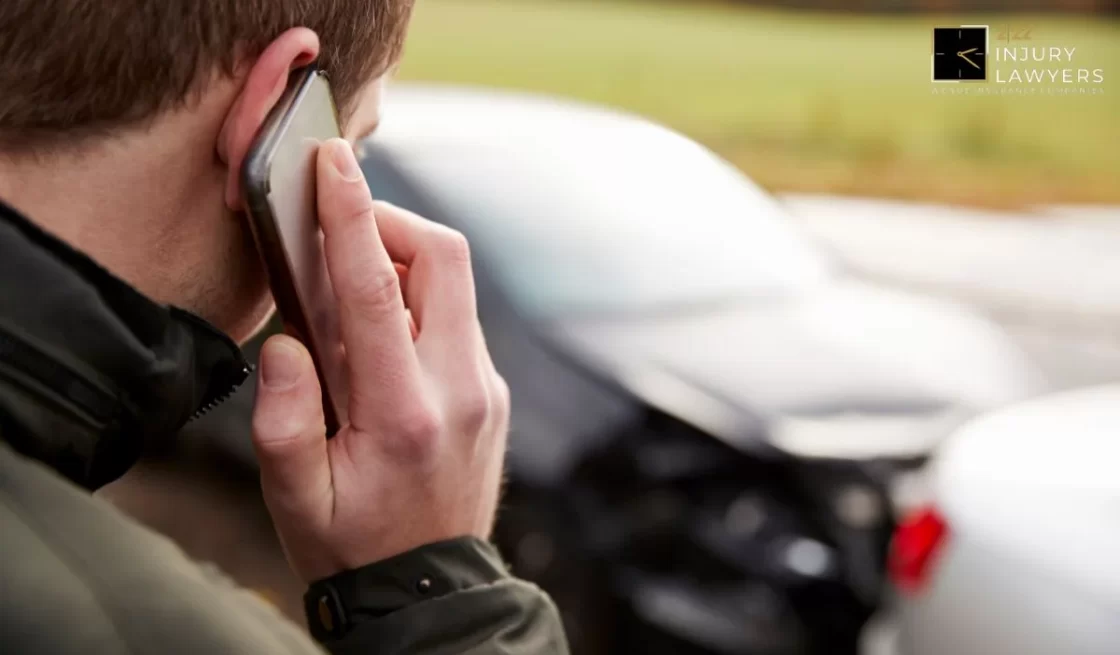How Long Do You Have to Report a Car Accident to Your Insurance in Oklahoma? 2024

Following a car accident, depending on the nature of the collision, you may have reporting requirements to fulfill. Some requirements are mandatory, while others should be taken as a precaution to strengthen your claim. Oklahoma is an at-fault state, and drivers who cause accidents are responsible for paying damages. So, how long do you have to report a car accident to your insurance company in Oklahoma?
Reporting Requirements in Oklahoma Following a Car Accident
Even for minor collisions, drivers are required to stop at the scene of an accident and exchange contact info that includes insurance details and driver identification. In the event of very minor damage, the two parties may agree not to file an insurance claim. In those cases, your insurance company will not become involved, and there will likely not be any reporting requirements.
More serious accidents do require reporting, though. Under Oklahoma Statute §47-10-108, any automobile collision that involves bodily injury, death, or property damage in excess of $300 must be reported immediately to the police. Accidents must also be reported to the Department of Public Safety within six months.
For accidents that involve injury or serious property damage (usually meaning that one or more vehicles have to be towed away), law enforcement will come to the scene of the accident along with emergency medical personnel to help with injuries and secure the area. Failing to report an accident that led to bodily injury or death could lead to criminal charges.
The police will likely ask basic questions about the accident and take notes for a police report. You can request a copy of this report at a nearby police station. Some departments offer the reports online. If the police do not come to the scene of the crash, you can still have them file an official report. Even if you do not believe that you need a police report, filing one is a prudent step that can help you with your insurance claim or future legal actions.
Tips for Completing Police Reports
When assisting the police, there are basic steps to follow that can help them and bolster your case. Police reports are important, objective forms of evidence that are admissible in court. Be fully cooperative with law enforcement and stick to the facts. If you believe you have been injured, let them know so they can include that information in the police report. Avoid speculation and assigning blame. Let the facts guide the narrative.
Be mindful of what you say. Your statement could affect your insurance claim later on. While the police officers work, they take photos and videos of the scene. You should gather witness contact information. Lastly, record the police officer’s badge number, name, and contact information.
When to Notify Your Car Insurance Provider
You need to notify your car insurance provider as quickly as possible. Describe what happened so they can open a claim. Provide your insurance company contact person with the evidence that you gathered and the police report number. If you were injured or suffered significant property damage as a result of an accident, having an attorney at your side can help you reach a fair settlement.
If the other driver’s insurance company tries to contact you, let them know that you have legal representation. Do not divulge any details of the accident or accept any offer until your attorney has an opportunity to review the settlement offer. If the offer does not compensate you for your losses, you can take further legal action.
Filing a police report and notifying the Department of Public Safety creates a paper trail that can help strengthen your case. Failing to make timely record filings or failing to notify your insurance company could weaken your case.
FAQs
Q: How Long Do You Have to Report a Car Accident to Your Insurance Company in Oklahoma?
A: Generally, you should report a car accident to your insurance company as quickly as possible. Every car insurance company will set policies on how long clients have to report a car accident, but the general rule is to report it right away. The sooner you tell the insurance company about the crash, the sooner you should be in line to receive compensation for your injuries and the damage to your vehicle.
Q: Do You Need a Police Report to File an Insurance Claim in Oklahoma?
A: Yes and no; some insurance companies may require or expect that a police report be filed as a condition of processing a claim. A police report does strengthen a claim because the document is viewed as a neutral and objective description of what happened. Police will often include descriptions of which party is likely at fault for causing the accident.
Q: What Is the Statute of Limitations on Car Accident Claims in Oklahoma?
A: The statute of limitations on car accident claims is two years for a personal injury claim against the at-fault driver. This is because Oklahoma’s statute of limitations for most personal injury cases is two years. After this legal deadline passes, you will be unable to hold the other driver accountable in civil court. If you believe you have legal grounds for filing a claim, filing sooner than later can have benefits.
Q: How Long Does an Insurance Company Have to Settle a Claim in Oklahoma?
A: Insurance companies have 45 days to settle a claim in Oklahoma. The starting time for this deadline is when the insurance is notified of the accident. Insurance companies can request an extension when 45 days is not enough. One reason a case may not settle quickly is if the at-fault party’s insurance company refuses to offer a fair settlement.
Schedule Your Car Accident Consultation Today
Following an accident, there are reporting requirements that you may have to fulfill. Any serious accident requires that the police be called immediately. Less severe accidents may still be reported to the police for the purpose of generating a police report. Police reports and other timely filings can greatly strengthen your case as you and your attorney pursue a fair settlement from the at-fault driver’s insurance company.
If you have questions about the filing requirements for a car accident, we’re here to help. The car accident attorneys at 222 Injury Lawyers have guided many clients through the process of filing insurance claims. To schedule your consultation, contact our office today.

Oklahoma City Office
222 Injury Lawyers, PLLC
6421 Avondale Dr, Ste 201
Nichols Hills, OK 73116
Request a Free Consultation
We Don’t Get Paid Until You Do
Fields Marked With An * Are Required

Tulsa Office
222 Injury Lawyers, PLLC
1217 E 33rd St.
Tulsa, OK 74105
*Please send all mail correspondence to this location




